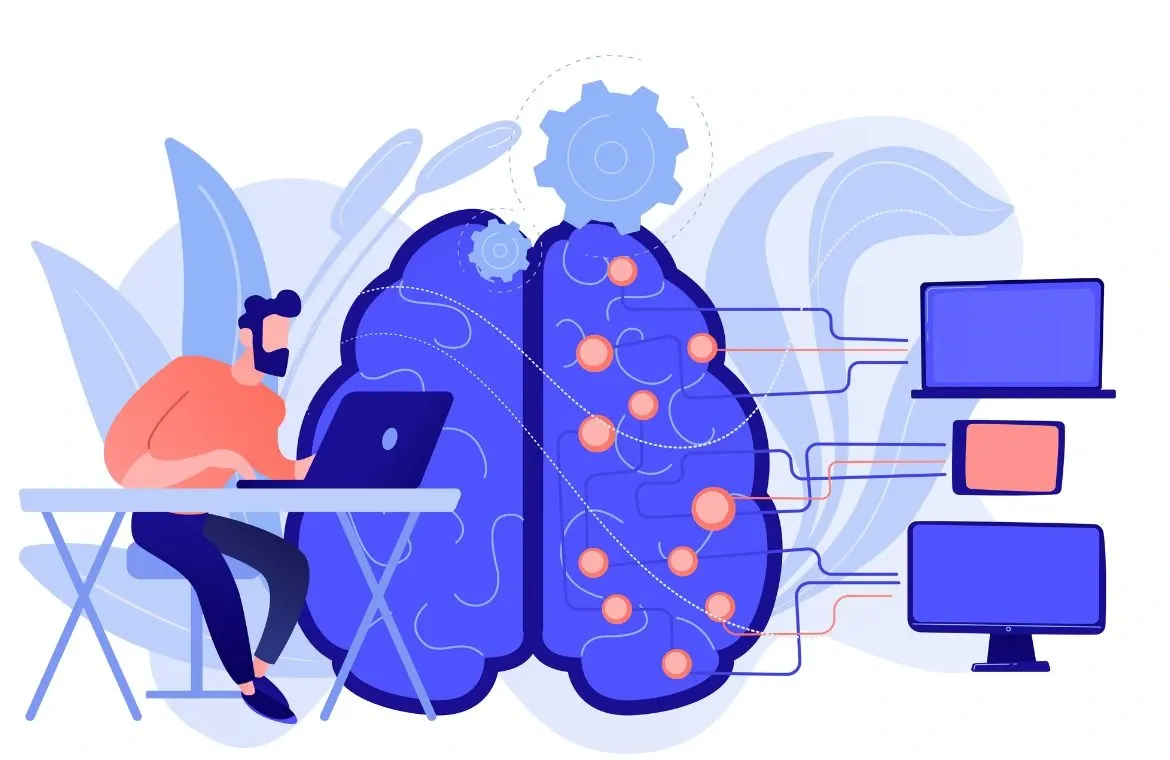The Building Blocks of AI: Neural Networks and Machine Learning

Just like human intelligence, artificial intelligence gets better with time.
Understand it this way - when you’re a child, you’re told that the furry animal is a dog. Over time, with continuous exposure and learning, you are even able to differentiate among the different breeds of dogs. The human learning process comprises - observation, experience, and reinforcement.
Now, imagine a machine doing this. The only difference here is that artificial intelligence (AI) does not observe only one dog at a time; millions of images of dogs are in the database and are analyzed. This learning process is powered by neural networks and machine learning.
Explore how they are the building blocks of AI.
Neural Networks: Core of AI
Artificial neural networks are at the heart of the AI system. They are the mathematical models inspired by the human brain. These networks analyze different layers of information and enable AI models to learn from experience.
This is How Neural Networks Work:
- Inner Layer: Here, the new information or raw data is received.
- Hidden Layer: Data is identified, and patterns within the data are recognized. Algorithms are used to identify trends.
- Outer Layer: The result or insights on the basis of the analysis are provided in this layer.
Why Neural Networks are so Important?
- Deep Learning Advancements: Complex networks with hidden layers are capable of recognizing intricate patterns, which power systems like autonomous self-driving cars and predictive diagnostics.
- Autonomous Decision Making: Neural networks enable AI systems to make decisions autonomously. Due to this, they can generate new text, predict outcomes, and detect fraud.
- Adaptability: Due to neural networks, AI models continuously learn and improve due to exposure to new data.
If you wish to master deep learning, you can consider checking the Deep Learning Course by IISc.
Machine Learning: Brain Behind AI
You can call it the brain behind AI or the engine powering AI. Machine learning enables AI systems to learn from data and improve over time without explicitly being programmed for that.
Types of Learning
- Supervised learning, where the learning is controlled and outcomes are expected.
- Unsupervised learning, where the learning pattern is not determined and outcomes are not known to the developers.
- Reinforced learning, which is all about trial and error.
Real-World Applications
You can see applications of machine learning everywhere. From autonomous systems to AI in healthcare, industries leverage machine learning. ML improves AI systems, and by feeding quality data, the system is expected to generate highly accurate predictions.
For instance, in healthcare, early detection of cancer is possible with AI. AI systems can be used to analyze patient data and identify patterns. Want to dive deeper into AI and ML? Consider the IIIT Hyderabad AI and Machine Learning Course.
Future of AI Development
Traditionally, the development of AI systems needs expertise in programming languages like Python and R. However, there has been a significant rise in no-code programming in recent years. These no-code platforms allow non-programmers to build AI models, too. All you need to do is use your creativity.
What does the future hold?
- More democratized AI development, as anyone can build AI models.
- Faster implementation, as AI models will be built within minutes.
- Improved accessibility, as AI development, wouldn’t be restricted to developers.
To prepare for the next generation of AI development, you can consider enrolling in a prompt engineering course that can equip you with the skills to use AI platforms for no-code development.
Wrap Up
Machine learning and neural networks are building blocks of AI, and gaining expertise in these can help you build your future career. Now, the question is not how AI will impact society or industries but how to prepare for the AI-driven world.
Kickstart your AI journey by enrolling in AI courses to future-proof your career.

TalentSprint
TalentSprint is a leading deep-tech education company. It partners with esteemed academic institutions and global corporations to offer advanced learning programs in deep-tech, management, and emerging technologies. Known for its high-impact programs co-created with think tanks and experts, TalentSprint blends academic expertise with practical industry experience.



